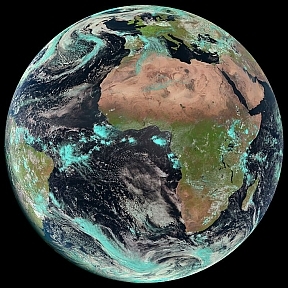Good practices
| Consisted of learning material regarding the carbon cycle which is organized in 3 stages: scenario, inquiry, decision-making Stage 1 : Scenario Extreme weather phenomena are being observed across the globe. Catastrophic typhoon in Philippines..., extreme drought in Africa...., Cyclone Cleopatra ... |
| The project was conducted in the frame of module C of the Climate Research Campaign, part of the GLOBE Program in Poland. Main goal of the project was to prepare lesson scenarios on climate change based on satellite data (for example available in European Space Agency School Atlas). All scenarios we... |

|

|

|

|

|
| The KALIF-project (out-of school studying in the forest) may be described as a concept to teach students the goals of sustainable development by sustainable learning. Sustainable learning is reached by the way the project is woven into the school curriculum “spirally”: Students may attend KALIF- cou... |





